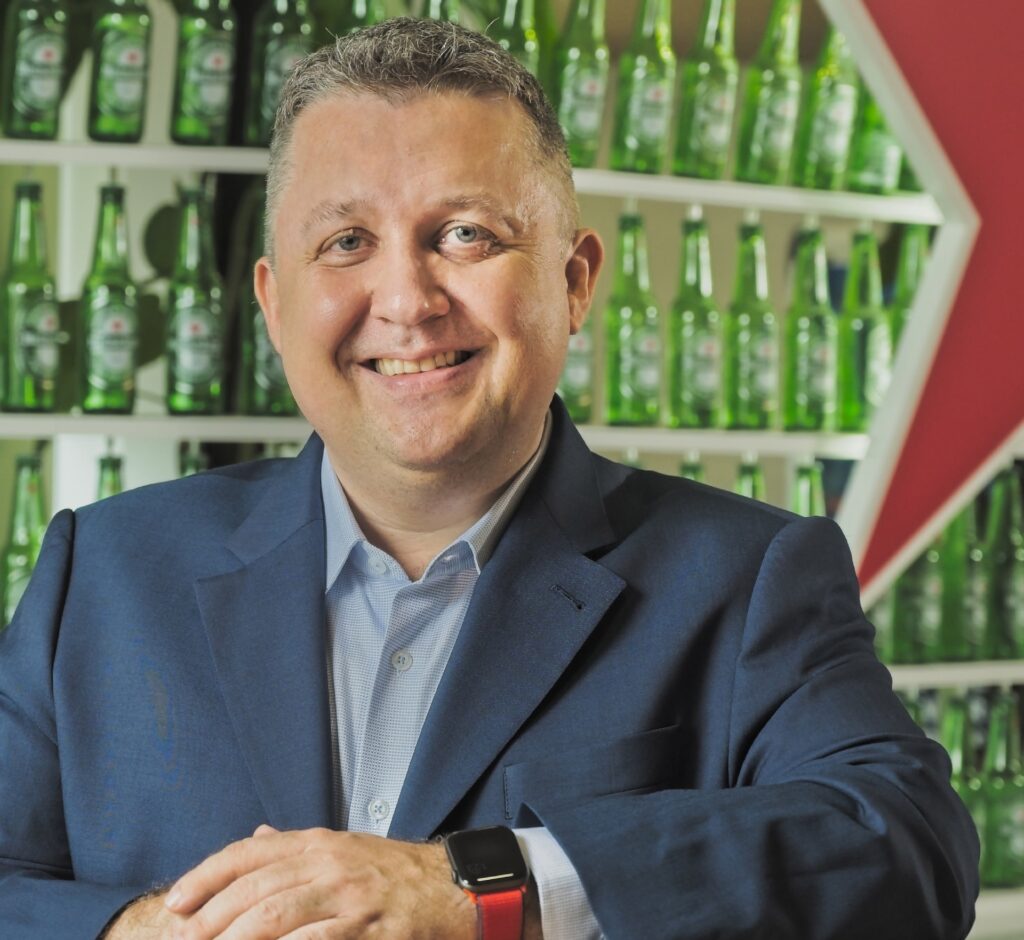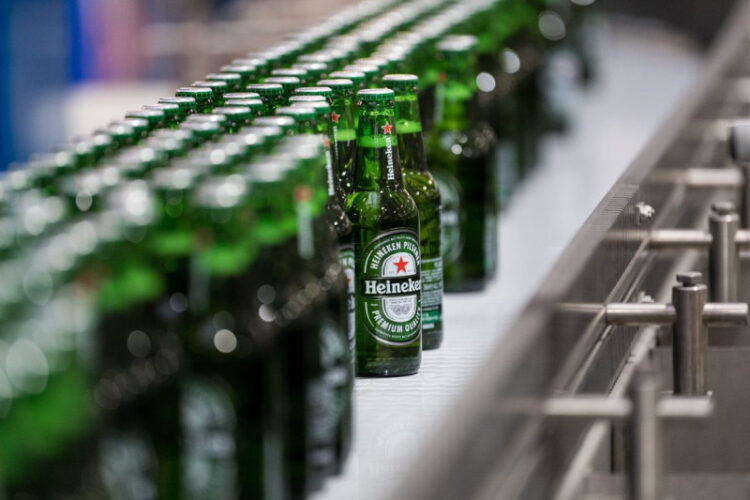It may not seem like a likely early adopter of emerging technologies, but Heineken hopes its investment in generative AI (GenAI) will yield better brews, even as it works to improve access to quality data.
The Dutch beer brewer in March 2025 launched its global GenAI lab in Singapore, in collaboration with local government agency AI Singapore.
The facility aims to build GenAI applications that can fuel the company’s growth and productivity, and enhance customer engagement across the globe. This will include the development of agentic systems that can autonomously solve complex problems, encompassing automated marketing content creation, financial reporting, and knowledge management systems.
By year-end, the lab targets to have a team of eight digital and technology specialists recruited from AI Singapore, according to Ralph Ostertag, Heineken’s Asia-Pacific director of digital and technology and global GenAI lab. The local team also will have access to AI Singapore’s talent pool and resources to support its projects.
The GenAI facility will further fuel Heineken’s digital transformation and ambition to be “the world’s best-connected brewer”, Ostertag told FutureCIO in an email interview.
This means digitising and integrating its business processes and embedding a data-driven culture, he said.

It also requires digitising its “route-to-customer”, leveraging data, simplifying and automating processes, and building a secure modern technology infrastructure, said Heineken’s chief AI officer, Surajeet Ghosh.
“AI plays a critical part in achieving this,” Ostertag said, pointing to digital technology as the backbone of the company's business, underpinning its “entire global operations”.
Putting AI in every brewing decision
With a history in beer brewing that dates back to 1886, Heineken currently operates various production facilities, including breweries and cider plants across more than 70 countries.
It has more than 500 brands globally and supports a clientele that encompasses wholesalers and distributors, retailers, bars, restaurants, and clubs.
“Our global mission is to make every major business decision at Heineken based on data-driven analysis, ensuring efficiency and quality control at every step. AI solutions are key to this,” Ghosh said.
He added that AI already has been applied to its business operations, including global commerce operations as well as finance and procurement.
For example, its Product Recommender application provides customers with personalised AI-generated recommendations for orders and reorders, suggesting alternatives when certain items are unavailable. The AI feature is available via multiple customer touchpoints, including Heineken’s business-to-business e-commerce platform, engagement with sales representatives, and telesales interactions.
An AI-powered Next Best Action application also enables Heineken’s sales executives to pre-empt customer concerns and address these ahead of time, Ghosh said.

“These AI solutions help us generate incremental revenue uplift and develop a winning product portfolio. Our approach combines human expertise with AI capabilities to ensure our practices are responsible,” he said. “The global GenAI lab will continue to build upon these goals and help us leapfrog when it comes to innovation within the GenAI space.”
Ostertag added that the lab will build and deploy bespoke GenAI and agentic AI applications that address specific challenges across Heineken’s business functions.
Its objectives here are to drive growth and productivity for the company and ensure it is “future-fit”, he noted.
In addition, the lab will provide consulting services to teams developing their own GenAI tools, offering technical guidance aligned with Heineken’s global framework and compliance requirements, he said.
Data still a bottleneck to accurate decisions
There are, however, challenges that still need to be addressed as the organisation ramps up its AI deployments. Data, in particular, has proven to be a major bump in the road.
Specifically, real-time recommendations depend heavily on accurate and updated data, Ghosh said. When an inventory does not have the latest updates or contain inaccuracies, errors can occur. Product suggestions, for instance, can be rendered unavailable, he said.
It is an area that his team continuously looks to improve and resolve, he added.
It also works to establish credibility within the organisation by implementing modelling frameworks, including A/B testing and counter-factual modelling, to measure the downstream impact of its AI initiatives, Ghosh said.
Such efforts ensure the incremental value of its AI rollouts can be clearly quantified with data and impact demonstrated, he noted.
This is critical to earn the trust of its business teams and drive adoption across the organisation, which has been experimenting with AI since 2020.
It currently is looking at the use of agentic AI to create “semi-real-time business insights”, he said. For example, AI agents can be implemented to track business performance and assign tasks to individuals or virtual agents when invention is needed.
"Even the most robust and accurate models will not generate any business value, unless they are effectively built into business decision-making processes."
A feedback loop also will be implemented to determine if the task was completed correctly and whether the issue was addressed sufficiently, Ghosh said.
This will help ensure an end-to-end agentic AI architecture is established, he said.
There are further plans to explore more use cases for AI agents to be deployed within the organisation, he added.
He also stressed the importance of preparing users for an AI-powered work environment, noting that Heineken has a dedicated team focused on upskilling its employees with AI capabilities.
Ensure integration into business processes
“We’ve learned that even the most robust and accurate models will not generate any business value, unless they are effectively built into business decision-making processes,” Ghosh said. “This led us to prioritise organisational upskilling to ensure our employees are familiar with our AI models and how they can benefit from them.”
“We recognise that establishing a specialised tech capability like AI requires time, effort, and attention,” he said. “While we consult external experts at the beginning of new projects, we aim to keep all development and deployment in-house.”
“This helps us prepare our own data scientists and data engineers to develop the skills required to solve complex business problems using AI,” he added.
Asked how technology vendors can help ease AI adoption for companies such as Heineken, Ghosh urged market players to ensure their products have robust cybersecurity and comply with regulatory requirements.
“Before we start designing analytics models, we [have to] decide whether to build AI in-house, partner on AI, or buy from third-party vendors,” he explained. This selection process involves assessing several components, such as internal capabilities, available skillsets, and resources.
Technology vendors can help streamline this by incorporating strong security mechanisms while adhering to regional data privacy legislations, such as the EU AI Act, he said.
He also urged market players to share transparent communications about the capabilities and limitations of their solutions, as well as development roadmaps.
This will enable Heineken to set realistic expectations and make informed decisions, he noted.




